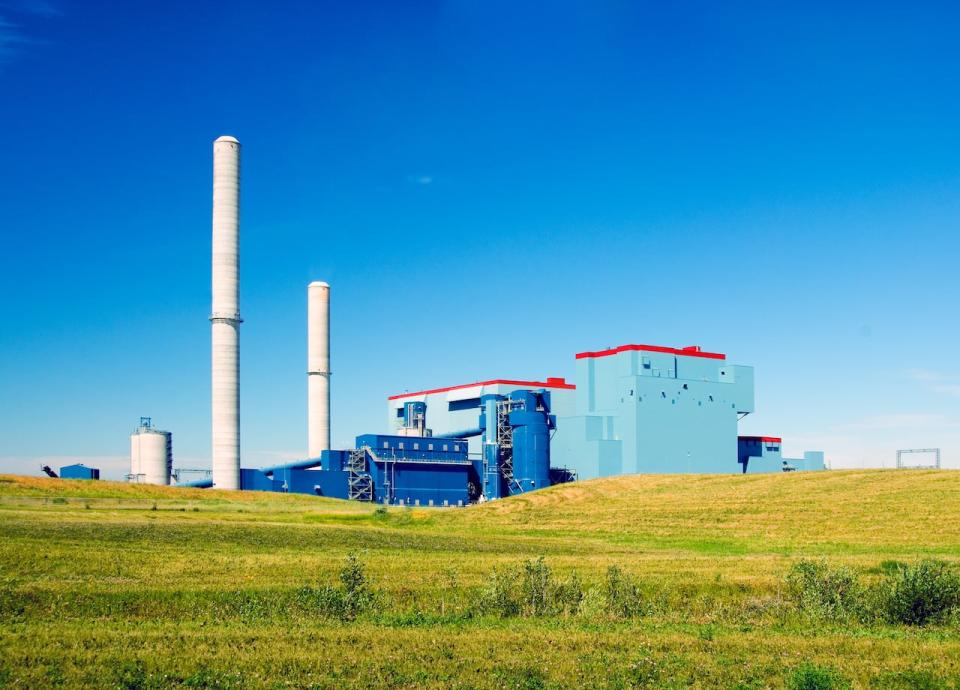$39M shared by Alberta communities hit by job losses in transition from coal-fired power plants
Weeks after Alberta's last coal-fired power plant went offline, the federal government has stepped up with more than $39 million in grants to help six communities that lost jobs in the transition to cleaner energy.
The funding, announced Wednesday by Dan Vandal, the minister responsible for PrairiesCan, will support 10 projects ranging from training centres, industrial parks and new community amenities.
"These investments will help create good-paying jobs, attract new investment opportunities and build a stronger, more sustainable economic future in Alberta and across the Prairies," Vandal said in a news release.
In 2015, when the then-NDP government announced plans to phase out coal power, there were six coal-fired plants in Alberta, which generated about 64 per cent of electricity in the province. The last plant, Capital Power's Genesee 2 facility, was taken offline on June 16.
Parkland County, on Edmonton's west border, was home to three Genesee plants. Mayor Allan Gamble said that the area lost 800 jobs when they were converted from coal to natural gas.
But the county is also getting the lion's share — almost $30 million — of the funding announced Wednesday.
It is getting $17.5 million to upgrade its wastewater facility, refurbish the waterfront and add a water feature. The county is also receiving $12.4 million to upgrade two intersections off Highway 16A so vehicles can more easily get to the Acheson Industrial Area.

To the county's west, Paul First Nation is getting $850,000 to transform an old elementary school into a transition, training and employment centre, as well as another $532,507 to produce a feasibility and technical study for a solar park development.
Dennis Paul, technical adviser with Paul First Nation, said the project is expected to generate 37 megawatts of electricity for the grid.
"It's not a gas-fired, coal-fired or wood-fired power facility. These are solar-powered facilities," he said.
The village of Forestburg, located 180 kilometres southeast of Edmonton, is receiving grants for three different projects: $313,000 to develop land and utilities for a proposed Jeanne Lougheed Historic Park and an industrial park; $250,000 for planning and design of the Forestburg South Industrial Subdivision; and $3.5 million to design and build roadways and extend utilities for the industrial park in the village.
Dwight Dibben, the town's chief administrative officer, said 500 jobs were lost with the closure of the Paintearth mine and the end of its coal-fired power plant.
The plant was converted to natural gas, which now employs 60 to 70 people, he said.
People received retraining, but families ended up leaving Forestburg to find work. Dibben hopes the federal money will help the village build the infrastructure needed to attract new businesses.
"We've started construction," he said. "We are hopefully going to have all this work done at the end of the calendar year and then hope to see industry follow."
Other grant allocations are:
$2.3 million to the County of Paintearth, about 250 kilometres southeast of Edmonton, to build wastewater and stormwater easement for a mixed-use industrial park.
$891,000 to the town of Castor, 140 kilometres east of Red Deer, to convert a campground into a venue that can be used year-round for different purposes.
$891,000 to the town of Coronation, about 175 kilometres east of Red Deer, to renovate two buildings that will serve as the town's business incubator and accelerator centre.


